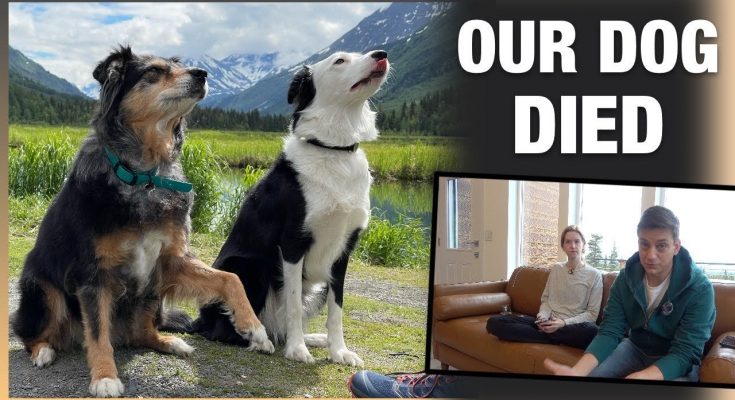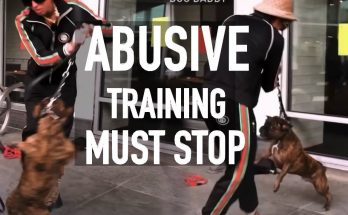Our dog died 🙁 Let's talk. Thank you Nom Nom for sponsoring this video: http://trynom.com/zak
If you can’t get enough Indy photos you may want to follow Bree: http://instagram.com/breejustine
For more daily dog training tips and videos FOLLOW US! @zakgeorge on Instagram: http://www.instagram.com/ZakGeorge
I’m on TikTok too! http://vm.tiktok.com/fFxPbh/
Like me on Facebook! http://www.facebook.com/TheZakGeorge
Support my videos by making a contribution on patreon: http://www.patreon.com/zakgeorge
Order my NEW book here (detailed dog training advice) https://amzn.to/2XiER6f
And check out my other book (broad overview of choosing, raising and training a dog) here: https://amzn.to/1PXH568





I’m so sorry she was a great angel dog🙏🙏🙏🙏
Oh no! I’m so very sorry. It’s so heartbreaking to lose a pet. She was such a sweet girl and has brought such joy to all of us and clearly so much love to you both. My heart goes out to you both.
I’m so glad she made it to Alaska. May her memory be a blessing .
We just had to put to sleep, our sweet 13 year old Husky. He was absolutely the best dog I’ve ever had. We now have a border collie that we got around 3 weeks after Timber passed. We didn’t know Sully is what we needed. I know it’s so hard to lose a dog; I’m so sorry. Much love to you and your family <3
Sorry for yalls loss. She lives a healthy happy long life and brought y’all togather.
May indi Rest In Peace. Even though she was fifteen she still was so energetic
Dogs never live long enough for us humans, we must appreciate them while we have them during this short time frame. I mourn my dogs much more than the people that have passed in my life, exception would be children but I have not experienced a child’s death thank god. May Indy be happily frolicking at the Rainbow Bridge with all her friends, my deepest condolences to you both.
My heart breaks for you both. The tears just started falling. Indiana meant a great deal to us all. R.I.P to a wonderful pup ❤😭 sending your family tons of love
Sorry for your lost my friend with 💘🐾🐶👫🌹. I know how you feel my friend.
Just lost 2 in a months time. Sorry for your loss
Losing a dog is never easy. But the love they shared while on earth is worth the hurt…🤕..you’ll be missed Indy. …❤️…
So true
Sorry for your lost 😔
You are so right, Bree, in what you said about how grieving for a pet is minimized and, truthfully, sometimes even laughed at. The reality is that grief is grief, no matter what we are grieving about. Thank you for sharing so openly your lifetime of happy memories with your dog, and I am so glad for you that you have all of those pictures and videos to comfort your heart now. ❤ -Cara
So true. My mother, seven years later, still burst into tears at the memory of the dog she lost. A pet is a member of the family and the loss can be as great as that of a human.
So sorry for your loss. Worst part of owning a dog is losing them.
losing a dog is sad
So sorry for your loss…love seeing what a beautiful life she had with you both, how she brought you together, and what a blessing she was to the both of you❤️
I am so sorry for your loss. Losing a pet never easy…
Indiana was a beloved dog; may she rest in peace.
My heart breaks for you guys. As someone who has been through a lot of loss in my life I can tell you that although many people don’t think of pet loss as being as big of a deal it really can be. Loving your most loyal furry family member does not diminish the love you have for the people in your life, but that may not being understood by people who are lucky enough to not have felt that pain.
Sending virtual hugs.
I understand the pain of losing a dog, It’s heartbreaking to lose someone who loves you as much as you can possibly love back, Indiana was the happiest she could be with you, May she Rest In Peace, and my condolences
Oh gosh I’m sorry Indie has passed away, sending love to both you Bree and Zac. No one should diminish the loss of a family member, human, furry, feathered or scaled xx Sleep tight little Indie, you are loved xx
Zak and Bree doing the Lord’s work in explaining how peer-reviewed research is designed and executed.
The blanket statement by the AVSAB shows they are clearly not based solely in science. All studies on the subject of R+ only vs aversive training are clear and upfront about their limitations as they should be. The most striking limitation to me is the commonly excluded subset of dogs with serious behavioral problems like aggression (dog-dog or dog-other). Therefore, it is difficult to extend such a blanket statement to this subset of behavioral problems when they are not well studied. For instance, is it more harmful to a dog’s mental well-being to live with such a stressful, toxic mindset for months (or years in bad cases, or for life if you think some dogs just cannot be fixed, i.e. Victoria Stilwell) waiting for R+ only techniques to work (if you think they will)? Or is it better for the long-term health of the dog to experience “aversive” measures and fix the behavior in a few days/weeks (see many many examples by Tom Davis, Cesar Milan, Beckman, etc. for success stories)? I don’t 100% know the answer but NEITHER DOES THE AVSAB. Their cop-out is to include the phrase “management” which is not realistic in many circumstances. You cannot always control your environment and it is certainly not healthy to completely isolate your dog. Therefore, it is clear to me that the AVSAB is not issuing this statement based solely in science, but rather with an agenda.
Additionally, I think it is important in science to first take clues from nature. If you have ever observed a mother dog with her puppies, you will see that physical corrections are a natural part of learning and decreasing unwanted behaviors. This is a centuries-long study that humans have conducted since they began domesticating dogs.
You know that everyone in this group understands the grief of losing a beloved dog. Indy was a gem and I think we all loved her, too. And, by the way, don’t think we didn’t see the new puppy in this video:)
😥 I dread loosing my Husky, but I do know that day will come sometime. Never easy, sorry man…
I am so sorry for your loss. Indy was a very special dog. What a beautiful life she had.
Aww thanks Emily😀😀. We are really looking forward to seeing more of you and your awesome pups!